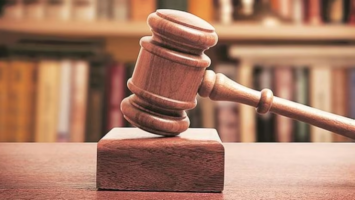LOK SABHA PASSES THREE CRIMINAL LAW BILLS
The Lok Sabha on Wednesday passed three bills to replace the colonial-era criminal laws by voice vote.
The three redrafted bills — the Bharatiya Nyaya (Second) Sanhita, Bharatiya Nagarik Suraksha (Second) Sanhita and the Bharatiya Sakshya (Second) Bill — were introduced in the Lok Sabha by Union Home Minister Amit Shah last week.
These bills will replace the Indian Penal Code-1860, the Code of Criminal Procedure Act-1898, and the Indian Evidence Act of 1872, respectively.
The Bharatiya Nyaya (Second) Sanhita Bill (BNSS) will replace the Indian Penal Code, 1860; the Bharatiya Sakshya (Second) Bill (BSS) will replace the Indian Evidence Act, 1872; and the Bharatiya Nagarik Suraksha (Second) Sanhita Bill (BNSSS) will replace the Code of Criminal Procedure, 1898. All three were discussed and passed with a voice-vote, in the absence of the majority of Opposition members from INDIA bloc parties, as 97 of them have been suspended during this session.
Home Minister Amit Shah said that the three Bills stressed justice rather than punishment, and have been designed to last for the next century, keeping technological advancements in mind. “This is a pure Indian law after removing all the British imprints. As long as we are in power, we cannot become a police State,” the Minister said.
Union Minister of Home Affairs Amit Shah, in his reply speech in the Lok Sabha today, mentioned certain highlights of these bills. They are :
‘Terrorist Act’ is defined as a separate offence under the Bharatiya Nyaya Sanhita (BNS). It will include acts which attack India’s unity, integrity, sovereignty, security, economic security, or spreads terror among any group
The offence of ‘sedition’ omitted. BNS penalises acts endangering the unity and integrity of India(Clause 150). While sedition criminalised acts against the government, the BNS replaces the government with the country. ‘Rajdroh’ has been changed as ‘deshdroh’. Citizens have the right to speak against the government and it should be protected. But acts against the nation cannot be tolerated.
‘Mob lynching’ has been made a separate offence under the BNS, with a maximum punishment of death penalty.
For several minor offences, ‘Community service’ has been made an option of punishment instead of imprisonment.
Provisions made to ensure compulsory collection of forensic evidence in the investigation, which will strengthen prosecution.
Audio-video recording of the statement of the victim of a sexual violence case made mandatory.
There will be an independent Director of Prosecution in every district to decide whether appeals should be filed, independent of the recommendations of the police or prosecution.
Provisions introduced to fix the accountability of the police.
Provisions introduced to ensure victim-centric justice.
Provisions made for Zero FIR registration. Victim can approach any police station, not necessarily the jurisdictional police station. The FIR will be transferred to the jurisdictional police station within 24 hours.
Courts cannot allow the State to withdraw cases without hearing the victims.
Serving of copies of the police report on the victim made compulsory. Victim to be informed of the progress of the investigation within 90 days.
All inquiries and trials can be conducted in electronic mode.
Offences against the human body, offences against women and children brought to the beginning of the BNS. For example, murder is now placed at cluase 102 of the BNS, instead of Section 302 in the IPC.
Separate provisions to deal with offences against women and children. In case of rape of a girl under 18 yrs, life imprisonment and death penalty can be given. In gang rape, 20 years or imprisonment for rest of life. Consensual sex with a wife aged above 15 was not an offence as per IPC; this age limit now increased to 18 years.
For ‘Hit and Run’, the punishment is up to 10 years imprisonment. But if after the accident, the offender takes the victim to the hospital, or police, lesser punishment will be given.
‘Snatching’ has been made a separate offence.
For the offence of ‘grievous hurt’, a separate provision made to deal with cases where the victim becomes brain dead to prescribe more stringent punishment up to ten years.


